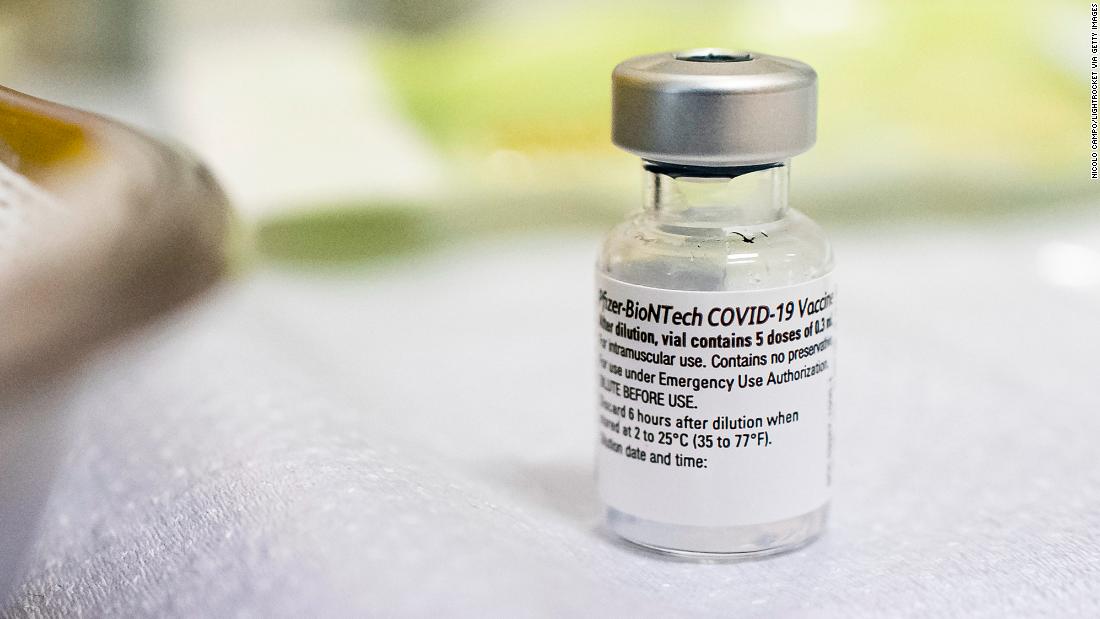“In the process of (discussing the agreement), I have always been concerned with the intervention of outside forces,” said Chen, without mentioning any country. “We believe there was political pressure,” he said. “At that time, we had already prepared our press release. But certain people do not want Taiwan to be very happy.”
In his statement on Thursday, Ma, from the Taiwan Affairs Bureau of China, also accused Taipei of trying to “bypass” BioNTech’s general agent in Greater China, Shanghai Fosun Pharmaceutical Group.
But Chen said the Taiwanese government had never contacted Fosun, but had spoken directly to BioNTech in Germany. BioNTech also never asked Taiwan to negotiate with Fosun, he added.
Fosun did not respond to CNN’s request for comment. Taiwanese pharmaceutical company TTY Biopharm, which was involved in negotiations with BioNTech, declined to comment, citing a confidentiality agreement between the two companies.
In a statement on Thursday, BioNTech said discussions with Taiwan were ongoing. “BioNTech is committed to helping end the pandemic for people around the world and we intend to supply our vaccine to Taiwan as part of that global commitment,” said the statement.
Concern that political pressure could prevent the deal with BioNTech has prevented Taiwan’s Health Minister Chen from discussing the matter publicly while negotiations were underway, he said in Wednesday’s interview.
At a news conference on Thursday, Chen praised BioNTech’s statement and called it “an initiative to send goodwill”. “We hope to be able to continue and finish our original contract,” he said.
But shortly after that announcement, BioNTech gave up on the deal.
Although Chen did not mention the name of China, he dealt a disguised coup in Beijing after it went off the air during a commercial break.
A difficult task
Beijing claims total sovereignty over Taiwan, a democracy of almost 24 million people located on the southeast coast of mainland China, despite the fact that the two sides have been governed separately for more than seven decades.
Chinese President Xi Jinping has vowed that Beijing will never allow the island to become fully independent and has refused to rule out the use of force if necessary.
Cross-strait ties have eroded since Tsai’s independence-inclined Democratic Progressive Party (DPP) came to power, and the pandemic further damaged relations.
On Thursday, China’s Foreign Ministry attacked Taipei, accusing it of “using the pandemic as an excuse to engage in political manipulation and overdoing political issues”.
“The Democratic Progressive Party must … do real things to promote the health and well-being of people in Taiwan,” said Chinese Foreign Ministry spokesman Hua Chunying at a news conference.
Taiwan has been a rare success in the fight against coronavirus, thanks to its swift action to ban travel from mainland China at the start of the outbreak in Wuhan, in addition to imposing strict border controls and quarantine requirements during the pandemic. As of Friday, the island recorded only nine deaths and less than 1,000 infections – most of which were imported cases.
Meanwhile, China has promised to make its vaccines a “global public good”. The Chinese government said this month that it is providing vaccine aid to 53 countries and exporting doses to 22 nations. Taiwan is not on the list of these recipients.
